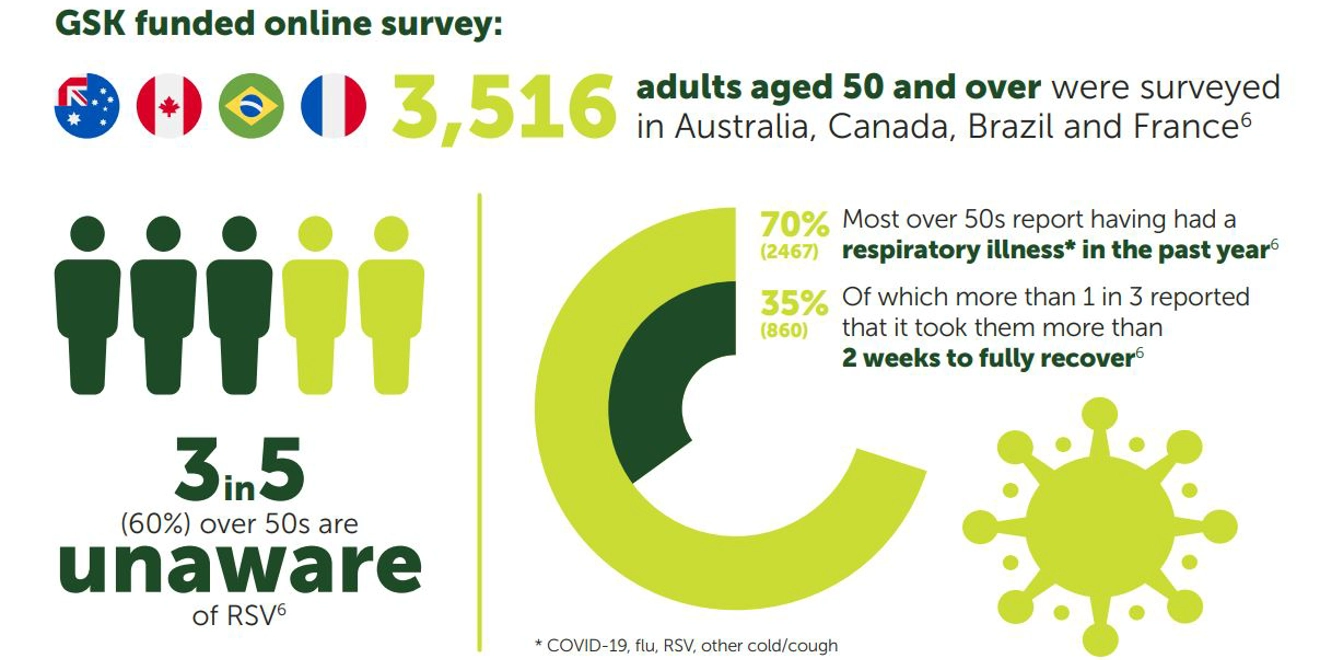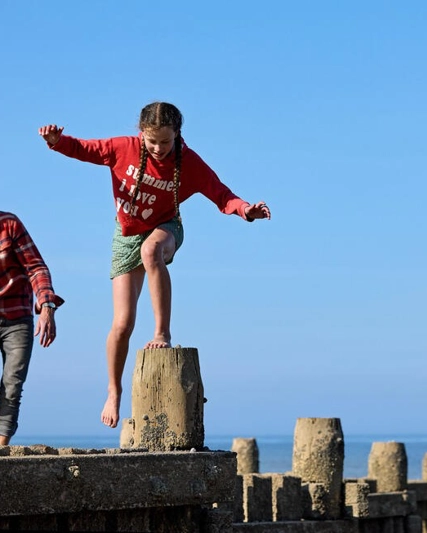Six in 10 adults over the age of 50 have never heard of respiratory syncytial virus – or RSV – despite those with chronic conditions being among the groups most at risk of infection, a new GSK survey shows.
RSV is a contagious virus that can infect the nose, throat, lungs, and airways, resulting in mild, cold-like symptoms for most healthy children and adults. However, it can be life-threatening to babies, older people, people with underlying respiratory or heart diseases and for those with compromised immune symptoms.
A leading cause of respiratory illness in adults, it is estimated to cause more than 5 million infections, 470,000 hospitalisations and 33,000 in-hospital deaths in over 60s who live in high-income countries every year.
However, of the 3516 adults surveyed by GSK from France, Canada, Australia and Brazil, 60% were unaware of RSV. What’s more, 56% of the adults who said they were unaware of RSV were most at risk of becoming seriously ill from the virus due to underlying medical conditions.
“RSV is a major cause of respiratory illness in adults aged 50 and above, but these results indicate that more education is needed to ensure the burden of disease is understood,” says Jane Barratt, Global Advisor for the International Federation on Ageing in Canada.
“This means that its true impact on public health may be underestimated and that at-risk populations may be missing out on opportunities to better educate themselves and help prevent respiratory illnesses.”
The survey also aimed to show the impact of respiratory viruses like RSV on the respondents.
70% of total respondents reported suffering from a respiratory infection – such as COVID-19, flu or RSV – in the last 12 months, and 35% of those said it took them more than two weeks to fully recover.
Nearly two thirds (65%) of respondents who reported a respiratory infection also said that the infection disrupted their daily activities, while 31% said it affected their ability to work.
The data has been released as part of GSK’s first Global RSV Awareness Week, which will focus on raising awareness about the risks of RSV and encourage at-risk adults to speak to their healthcare practitioners for more information on the disease and how to help prevent it.

Practising good respiratory hygiene, such as coughing into a handkerchief, wearing a face mask, and avoiding close contact with those who are unwell, are among the essential methods recommended for adults to protect against infection.
Yan Sergerie, Global Medical Lead for RSV at GSK, says: "As populations age around the world, the impact of RSV is likely to increase in the coming years."
“With so many of those at risk being unaware of RSV, there is a critical need for targeted education and public health strategies to educate these vulnerable communities so they can take steps to help prevent RSV.
“We hope this world-first Global RSV Awareness Week will encourage more people to speak to their healthcare professional for guidance on how to reduce their risk of developing the potential serious consequences of RSV."




